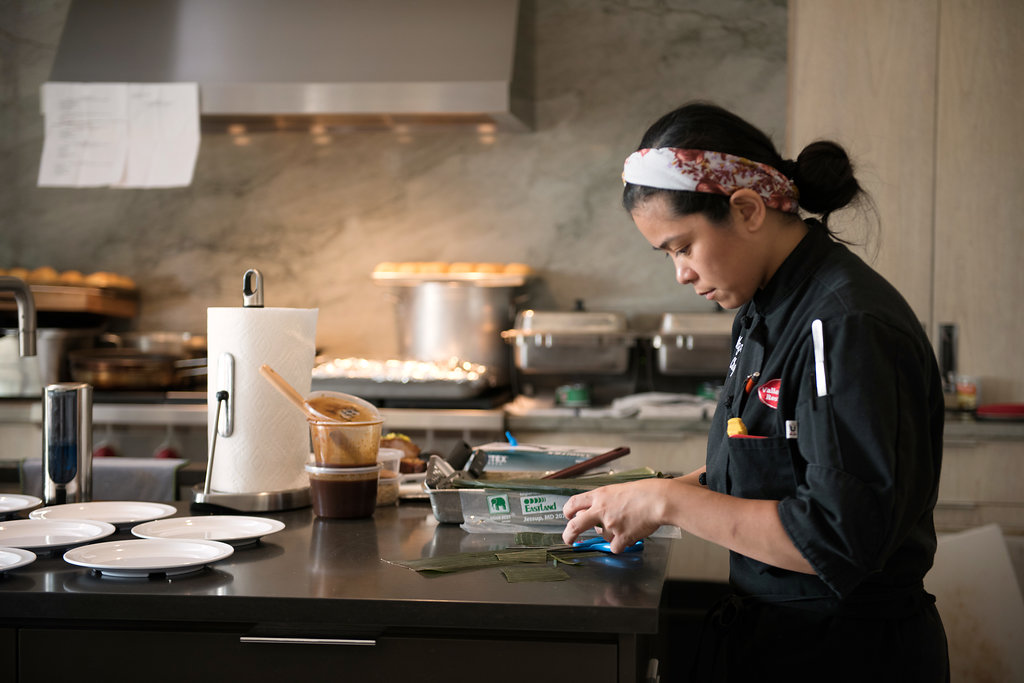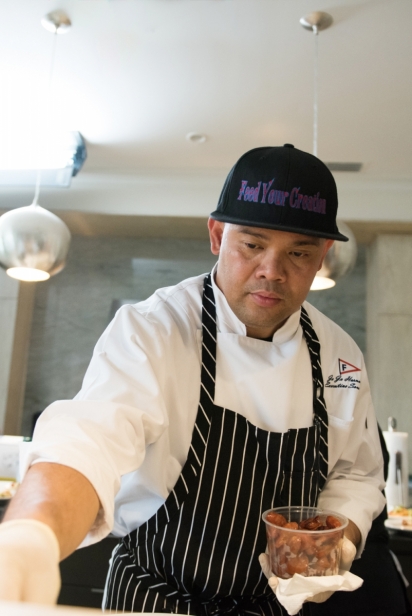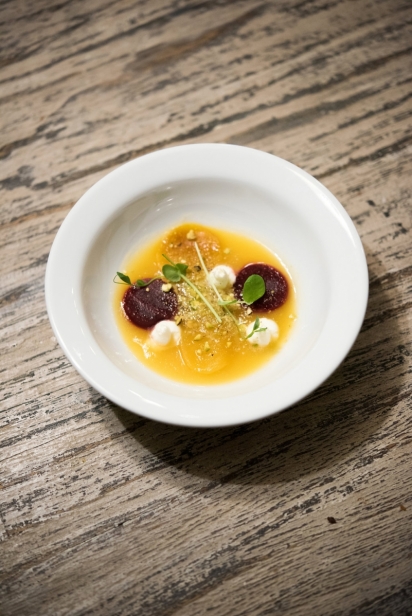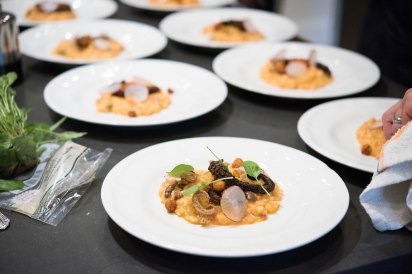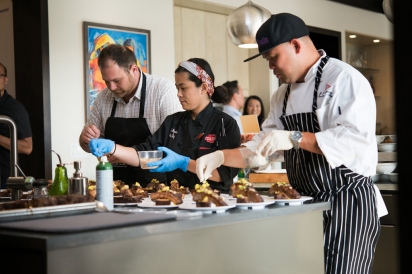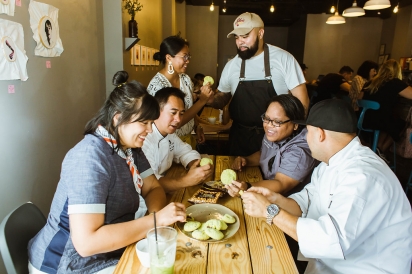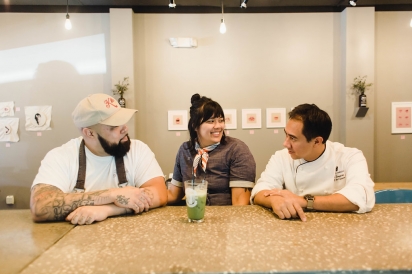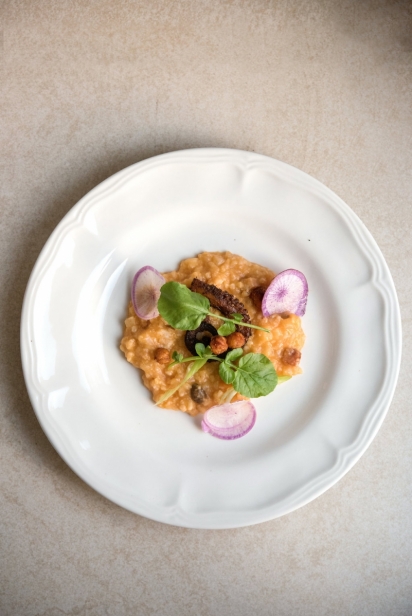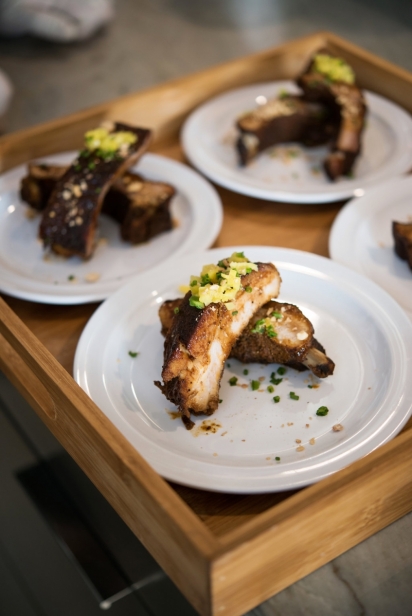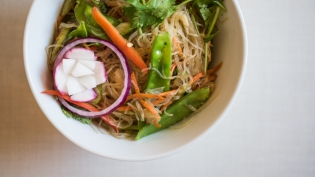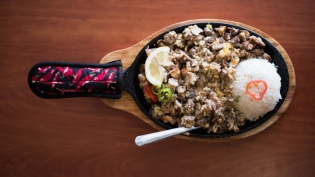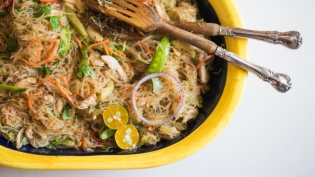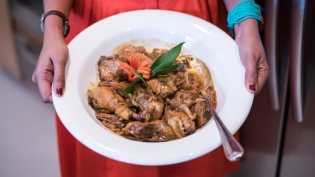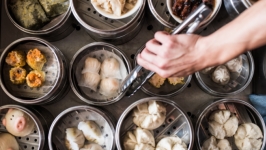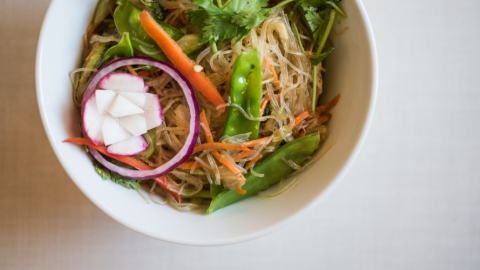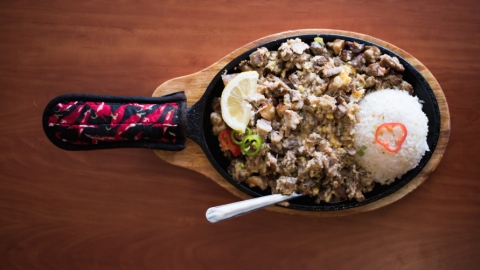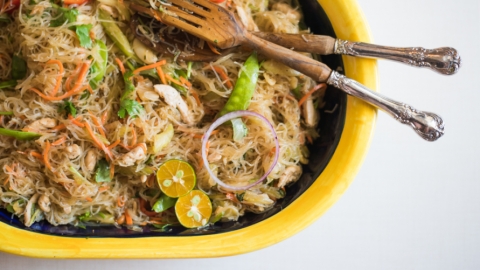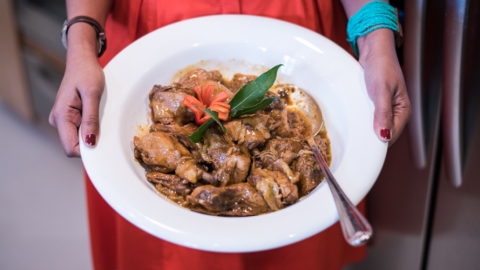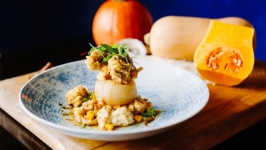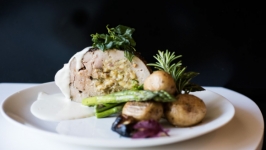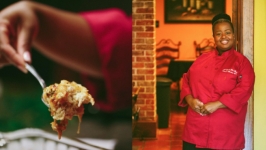Filipino Chefs in Northeast Florida
If one were to speculate which big city in Florida has the most immigrants from Asia, places like Miami, Orlando or Tampa might come to mind. It may come as a surprise to know it is actually Jacksonville, home to the state’s largest Filipino population, with over 13,000 residents according to a recent U.S. Census Bureau’s American Community survey.
The presence of the U.S. Navy bases in Jacksonville plays a significant role in the size of the Filipino population. Because of the historical and military ties the U.S. has with the Philippines, many Filipinos were able to enlist in the Navy and move to the States. Additionally the city’s health care industry has provided opportunities for the Filipino medical community.
Even as they adapted to their new culture, retaining their culinary heritage has been important to Filipino families, and many second generation children have grown up eating traditional dishes at home. Eating meals together is a social staple in the Filipino community.
"Cooking is always important to us," said Chef Melanie Cuartelon, Banquet Sous Chef at Sawgrass Marriott Golf Resort & Spa. She is a second generation Filipino, her parents having migrated to the U.S. in the late 1960's. "If you go to a Filipino house, even if it's just to go and say hi, you are either going to eat something while you're there or you're going to leave with food,” she said. Every family meal is a bonding moment, an important celebration of spending time with one another and being thankful for not only having the ability to nourish themselves, but also to share with others.
"I don't think I'd be a chef if I wasn't Filipino," said Calli Marie, head of the culinary program at BREW Five Points. Although she doesn't normally cook or bake Filipino dishes in her job she gives all the credit for her career to her Filipino heritage. "I think that being Filipino in general was the thing that inspired me to cook. Food was always at the center of my life. I just grew up sitting on my grandma's counter squeezing calamansi (a type of citrus similar to lemon) for lemonade. It was something we always did."
Now that millennial Filipino-Americans have grown and adapted to both cultures, they're excited to branch out even further and share their culinary experiences.
Chef Jojo Hernandez, Executive Sous Chef at the Florida Yacht Club and owner of Abstrakt Filipino Essence Cuisine, was five years old when his father enlisted in the Navy and transferred to America. Prior to his culinary career, Hernandez thought he would end up in the medical field like many first and second-generation Filipinos. "I finished medical school, but I was working in the kitchen. I worked in the doctor's office and then the hospital and I didn't really like it," he said. He ended up landing an apprenticeship back at his old job in the kitchen and having his culinary school paid for by his employer.
Family also played a key role in Chef Hernandez's passion for cooking. "That's the only reason I'm cooking now, because of family. I love feeding my family. Every time I go to the restaurant, every time I get to serve my food, I'm serving with my family. That's always in my mind," he said.
Hernandez and Cuartelon are part of a growing group of Filipino chefs making their way through the burgeoning culinary community in Northeast Florida, slowly but surely blending traditional dishes with other global cuisines to create new flavor profiles in dining rooms across the area. As they advance in their careers, the hope of the Filipino chefs is that they can take the food they grew up with and introduce it to more and more people.
"Now that you have a lot of mature Filipino-American chefs, they're willing to take a chance on their heritage and bring it out to the American food scene," said Chef Wesley Nogueira, chef-owner of Khloe's Kitchen, a local catering company. “I think that's the reason why Filipino food is trending," Nogueira said.
Recognition of the growing influence of Filipino chefs has become a pet project for editorial and food photographer Agnes Lopez. As a result of a life-changing trip to the Philippines, she became inspired to publish a book on Filipino chefs in the community. The chefs she met, including Nogueira, Hernandez and Cuartelon, were so passionate and excited that she brought them together to create a group called Jax Filipino Chefs. What was initially conceived of as a book quickly grew into a documentary scheduled to come out in October, during Filipino American History Month.
Producing the book and documentary is a way that Lopez feels she can utilize her professional skills to help put a spotlight on the local chefs. "I have this skill set to give them a voice,” said Lopez. They can't brag about themselves, but I can."
The documentary will feature Filipino chefs from restaurants all over the region, including Chef Rick Laughlin, the Chef de Cuisine at Salt, an award-winning restaurant at the Ritz-Carlton in Amelia Island. Although his dishes there don't always involve a Filipino twist, his half-Filipino, half-Irish background is what really drove him into the culinary arts. Who was his biggest influence growing up?
"My mother," he said as he looked back on her home-cooked meals during the holidays. "Every chef goes back to their childhood."
Laughlin is excited about his contribution to Jax Filipino Chefs, not just for himself, but for all the chefs in the group.
"I think everyone's bringing something different. Filipino cuisine is the next new thing. It's much more than [lumpia] and such a melting pot of different cultures," he said, which explains why the hashtag for their Instagram page is #MoreThanLumpia.
While the buzz around local Filipino cuisine in restaurants is indeed exciting, Lopez hopes that one outcome of her project is to encourage more second generation Filipinos to learn how to cook traditional meals at home. “They grew up exposed to Filipino food, and now it is their turn to continue on with the culinary heritage,” she said. “We don’t want to lose that knowledge.”


